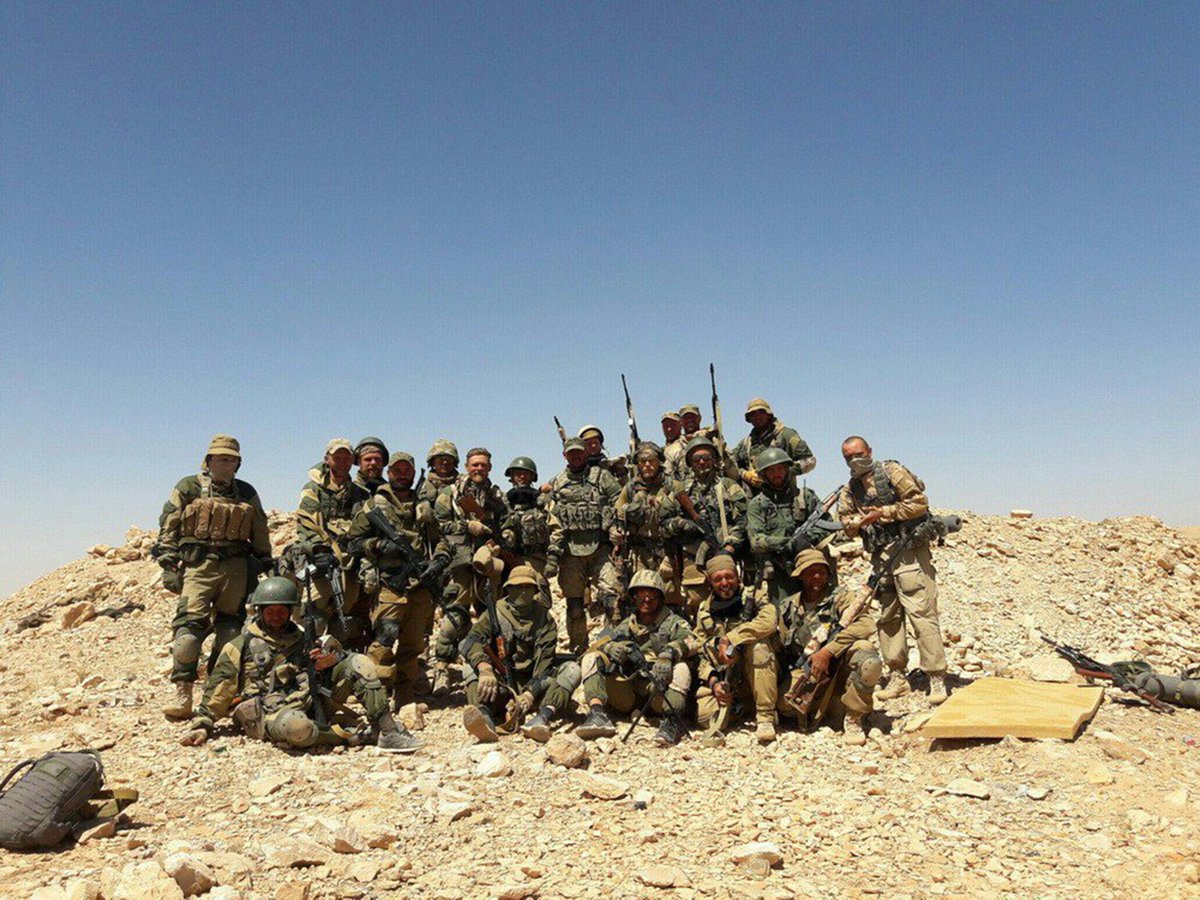
A photo of Wagner Group mercenaries at an unidentified location. (Photo from the Security Service of Ukraine).
Key. W: where the Wagner Group operates or has operated; blue: where the ICRUFTM has been ratified; light green: where the OAU CEM has been ratified; dark green: where the ICRUFTM and the OAU CEM have been ratified. Wagner is subject to a range of laws and conventions related to mercenarism. The relevant legal regime includes national laws in the different countries regulating mercenaries; the International Convention against the Recruitment, Use, Financing and Training of Mercenaries (ICRUFTM); the Additional Protocol (I) to the Geneva Conventions; and the Organization of African Unity Convention for the Elimination of Mercenarism in Africa (OAU CEM).
On March 11, a Syrian national filed a complaint in Moscow against a company called the Wagner Group, for the torture, killing, and mutilation of his brother by Wagner employees. This complaint is part of a second attempt to criminally prosecute members of this elusive group for this case. The Russian newspaper Novaya Gazeta submitted a complaint regarding the case in 2019, but no action was taken.
The Wagner Group, a Russian private military company, has played a strategically important role in countries such as Syria, Ukraine and Libya—and it’s found itself repeatedly at the receiving end of U.S. sanctions. Wagner has helped Bashar al-Assad’s forces in the Syrian civil war and participated in the Russian takeover of Crimea. But are the group’s actions legal? Though Wagner’s activities are nominally regulated by both international law and the domestic laws of the countries where the group is present, these laws put relatively few constraints on Wagner’s operations.
Background
The U.N. Working Group on the Use of Mercenaries defines private military and security companies (PMSCs) as corporate entities that “provide[] on a compensatory basis military and/or security services by physical persons and/or legal entities.” Typically, PMSCs provide a wide variety of military or security services for either governments or corporations—short of participating in combat—and do not receive direction from their home governments on how to operate or receive any assistance. However, Wagner is different from most PMSCs in that Wagner employees often engage in combat operations. Additionally, the company has a close relationship with the Russian government, which actively helps Wagner secure its contracts.
The Washington Post suggests that Wagner may have been founded in 2014 by former Russian security contractor Dimitry Utkin. However, information to confirm that Utkin was the founder is lacking. But at some point over the past few years, Wagner reportedly came under the ownership of Yevgeny Prigozhin—a Russian entrepreneur with close links to the Kremlin who might be familiar to Lawfare readers as the owner of the Internet Research Agency troll farm. Wagner employees were among the “little green men” who participated in the Russian takeover of Crimea in 2014 and assisted Russian separatists in Eastern Ukraine attempting to secede from the country. The group also became involved in Syria, and New York Times and Foreign Policy reported that U.S.-backed Kurdish fighters killed somewhere around 200 to 600 Wagner employees in the city of Deir al-Zour in February 2018.
In September 2019, Wagner sent 200 of its employees to Mozambique but reportedly withdrew from the country after seven of its contractors were killed there. Beginning in 2020, Wagner employees appear to have been supporting Khalifa Haftar’s forces in Libya with alleged financing from the United Arab Emirates. Although not fully confirmed, some reports suggest that the group’s employees manned anti-tank positions for Armenian forces during the recent conflict between Armenia and Azerbaijan in Nagorno-Karabakh. There are also reports that Wagner employees participated in combat, trained, and provided other security services in Azerbaijan, the Central African Republic, Libya, Madagascar, Mozambique, Rwanda, Sudan, Syria and Ukraine.
Due to the group’s involvement in conflicts in these countries, Wagner has been repeatedly targeted for sanctions by the U.S. government. In 2016, the U.S. Treasury Department placed sanctions on Prigozhin via executive order for his “extensive business dealings with the Russian Ministry of Defense” and for building bases to support Russian military actions in Ukraine. The Treasury Department has placed additional sanctions on Wagner since then. Most recently in July 2020, the Treasury Department updated previous sanctions against Wagner for its entities’ activities in Sudan.